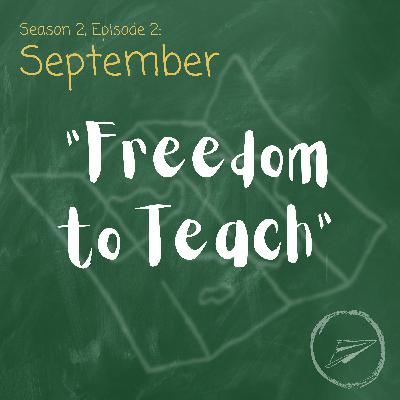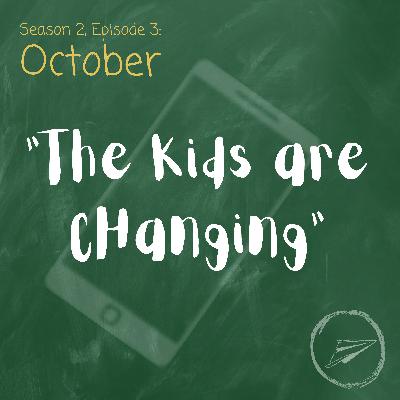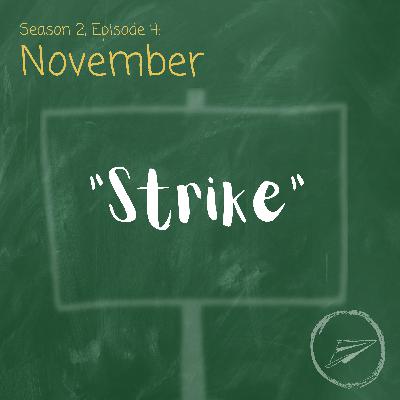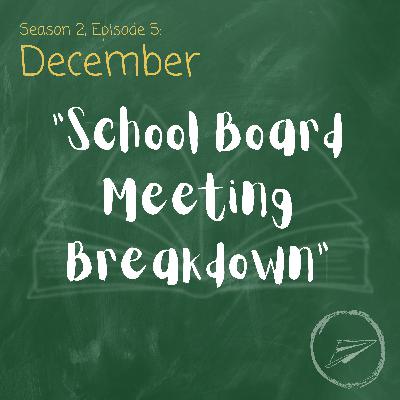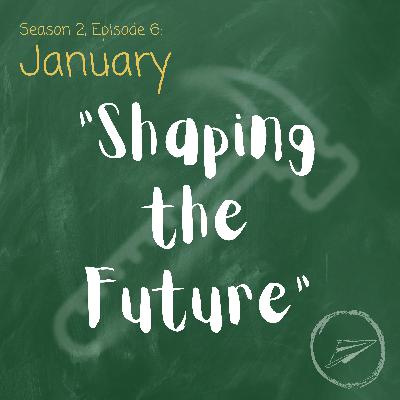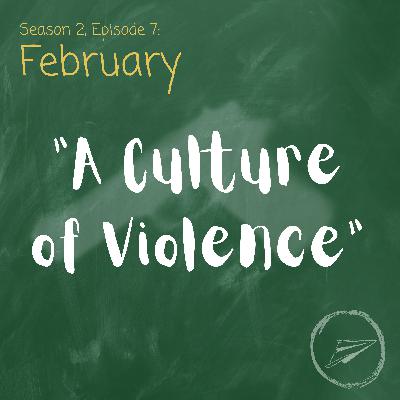2: Inheritance
Description
Many of the problems modern teachers are facing aren’t new, so we’re going back in time to find out how our education system became a system that teachers are currently fleeing. Come to find out, modern teachers inherited low pay, limited respect, and a system that strips communities of their cultural traditions. In this episode, hear how Indian Boarding Schools and the American Industrial Revolution have left traces on modern education, and how these traces are contributing to teachers’ decisions to leave education.
Music:
Theme Song By Julian Saporiti
“Sonata No.13 in E Flat Major, Op. 24 No. 1-II. Allegro, Molto, e Vivace” by Daniel Veesey is in the Public Domain.
“Railroad’s Whisky Co” by Jahzzar is Licensed under a CC BY-SA license.
“Ugly Truth” by HoliznaCC0 is in the Public Domain.
“Upsurge” by Jonah Dempcy is a CC BY-NC license.
“Green Lights” by Jahzzar is licensed under a CC BY-SA license.
“Pizz” by Andrew Christopher Smith is licensed under a CC BY-NC-SA
Transcript:
I had a band teacher once hold me after class and force me eat a beef and bean burrito. He sat in front of me on the piano bench to make sure that I ate it. I was a freshman, in the middle of the high school wrestling season, and I was cutting weight for my first varsity tournament – where I’d end up getting my lips knocked off. My teacher, Mr. Duran, was short, wiry, wore jeans with a braided leather belt and a button-down shirt. He had round-framed glasses, combed his hair to the side, and more than once told me to listen to the greats like Chick Webb and not just the white guys that made it on the radio.
He was in his 30th year of teaching, and he was not shy about giving advice. While I ate the burrito, Duran talked about playing baseball in college and how abruptly a life of sports could come to an end but how long a life of music could last. This was mature guidance, albeit, guidance that I see more value in now than I did then.
Duran would garnish each class with stories that worked to guide us towards being kind human beings. There were days in Jazz band where he would sit in the center of the tiered room, legs crossed, saxophone neck strap still on, and tell us about his past.
When Mr. Duran was in college at the University of Northern Colorado in the 1960s, the Count Basie Orchestra went through town and stopped at the university. UNC was known for its jazz programs and one of Basie’s saxophone players dropped out and they needed a replacement. Count Basie was one of the most influential musicians from the Swing Era – he was like a swing minimalist. Duran jumped at the opportunity. He got to travel and play with the band and experience life as a musician – more specifically as a musician of color. One time he and a buddy from the orchestra went into a diner and were refused anything more than water. Duran was Mexican and his friend was Black, and it was the middle of the 1960s. In protest, they sat in the big window of the diner for 3 hours, sipping their water, putting themselves on display for anyone who walked by.
I love that story – this man, my teacher, saw inequity and faced it with defiance.
Duran’s lessons were eye-opening. I didn’t realize that those stories served as parables on ethics and kindness until I became a teacher and started telling stories of my own to serve the same ends.
Duran used his history to help us become better humans. And isn’t that why we turn to history? Well, today, we’re going to take a lesson from Duran and examine the history of education in the U.S. And because the history of education is tremendous, we have to narrow it down. So we’ll focus on two aspects of history that set precedents for modern education, for the current system from which modern teachers are exiting.. We are going to start with Indian Boarding Schools, and then we’ll take a look at the American Industrial Revolution.
This is Those Who Can’t Teach Anymore, a 7-part podcast series exploring why teachers are leaving education and what can be done to stop the exodus. I’m Charles Fournier.
Here is part 2: “Inheritance”
Caskey Russell: I'm going crabbing this weekend. I own a boat with my brothers. And yeah, we go out and catch crab. And there'll be salmon season soon. So I kind of got back into the ocean style lifestyle.
This is Caskey Russel. I got to catch up with him over a zoom call this summer. He is the Dean of Fairhaven College at Western Washington University. He grew up in Washington and is from the Tlingit tribe. I know Caskey because he taught for 17 years at the University of Wyoming, he was a dean of American Indian Studies, and he was my thesis chair and educational guide when I was at the university. Some of Caskey’s research for his PhD program dug into the history of Indian Education, specifically Indian boarding schools.
Caskey Russell: My grandmother and her brothers, aunts and uncles, all went to Chemawa Indian School, in Salem. And it was a mixed bag.
If you are asking yourself, wait, who’s this Caskey guy and what do Indian Boarding Schools have to do with teachers quitting? Here’s how. We know that historical atrocities leave a trace on modern institutions, so we need to recognize that Indian boarding schools have left their mark on modern education. They are a part of the system of inequity modern teachers have inherited. Indian Boarding Schools are an example of the deculturalization that has occurred in education. One of many. Attempts to strip communities of their cultures happened with just about everyone in this country at some point that didn’t fit into the male, able-bodied, straight, white, Anglo Saxon Protestant category. Traces of these inequities remain in education, deculturalization still happens, and teachers working towards inclusion in a system that was based on exclusion often run into roadblocks – think book bans or accusations that teachers are trying to indoctrinate kids - and these roadblocks are pushing teachers out of education. So to better understand the inequities in modern education, this thing that is frustrating teachers to the point of quitting, we need to look at where some of those attempts at deculturalization originated. We need to look at Indian Boarding Schools. And we need to listen to someone like Caskey.
Caskey Russell: They liked the sports. They like some of the music, but my uncle Stanley Pradovic, I remember he said, “I used to dream of feasts, seafood feasts that they had in Alaska.” And my grandmother was able to keep the Tlingit language because she didn't go to boarding school, but her brothers did not.
You step back and look at the whole system and how destructive and just kind of the cultural genocide aspect. My grandmother would say she didn't know her brothers because when she was born, her brothers were gone away from her earliest memories. And so she didn't get to know her brothers right away. It did break families up. And I was just chatting with my mom last night. My mom said the other family had no control over what it was determined for them. And again, not having control over that seems to be the key to it, nor having input in the education nor valuing…and then having a different model, different cultural notion of success. And then the military and the Christianization, all that together, just adds problem on top of problem, instead of being empowering and enlightening, that really becomes conforming, sort of thing.
What happened to Caskey’s family was a result of centuries of efforts to deculturalize tribes. Early European colonizers of the US set a precedent of trying to assimilate tribes into a single monolithic culture. Colonizers disregarded tribal traditions and languages and failed to see that tribes already valued education for their youth. So the assumption that public education started with Horace Mann in 1837 is an assumption that values eurocentric education over the public education that was already in the Americas.
Part of this is because the purposes of education differed. Many Native communities saw educating children as a means to pass on generational knowledge and teach children how to be a successful part of the community. 17th-century Plymouth settlers specifically saw education and literacy as a method to keep Satan away. Children needed to be able to read so they could read the Bible. A pilgrim minister explained:
“[There] is in all children, though no alike, a stubbornness, and stoutness of mind arising from natural pride, which must, in the first place, be broken and beaten down; that so the foundation of their education being laid in humility and tractableness, other virtues may, in their time, be built thereon” (42).
But tribes did not beat down their children, did not read the Bible, and were able to






